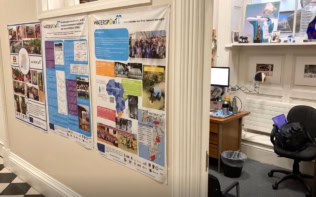Physicists should work harder to improve the public awareness of science and the training of science teachers. These are two of the conclusions of a report of a workshop held in preparation for the World Conference on Science in Budapest in June. The report also argues that the United Nations should set up an impartial international body to adjudicate on scientific questions such as genetically modified crops and cold fusion, and that the amount that a country spends on research should be directly linked to its gross domestic product. Physicists should also present a united front, says the report, or they will be vulnerable to 'fractional fighting'. The World Conference on Science is being organized by the United Nations Educational Scientific and Cultural Organization (UNESCO) and the International Council of Science (ICSU).
The three-day workshop was held in Debreccen in Hungary last month and involved physicists from both eastern and western Europe. Delegates were concerned about a number of ‘serious problems’ that physics faces both with its relationship with the general public, and as a discipline. The workshop pointed out, for example, that the public often cites Heisenberg’s uncertainty principle as a reason for claiming that everything is uncertain.
On a brighter note, the report points out that politicians are starting to realise how science can smooth and help diplomacy, and that the public are buying more popular-science books. ‘Our defence of physics, as well as science in general, must find ways of exploiting these hopeful points, ’ says the report.



